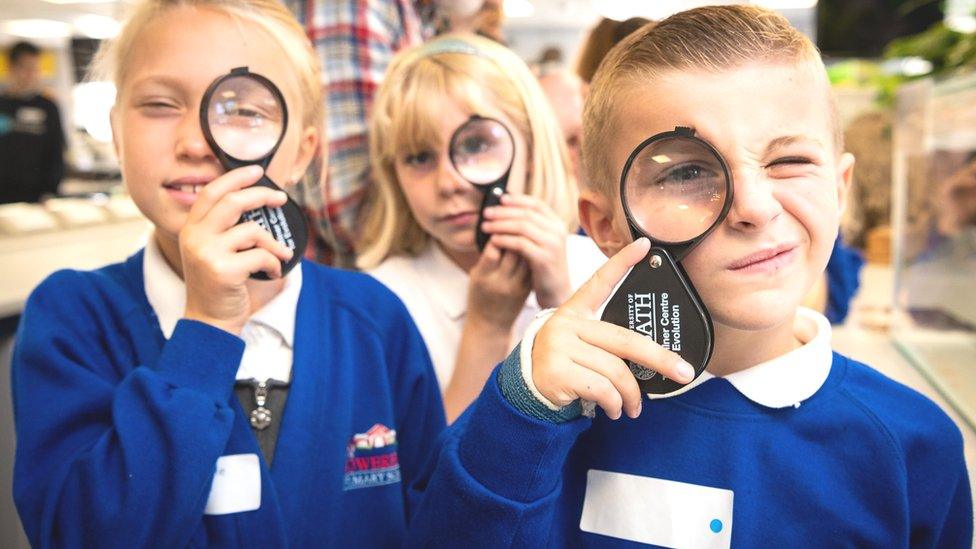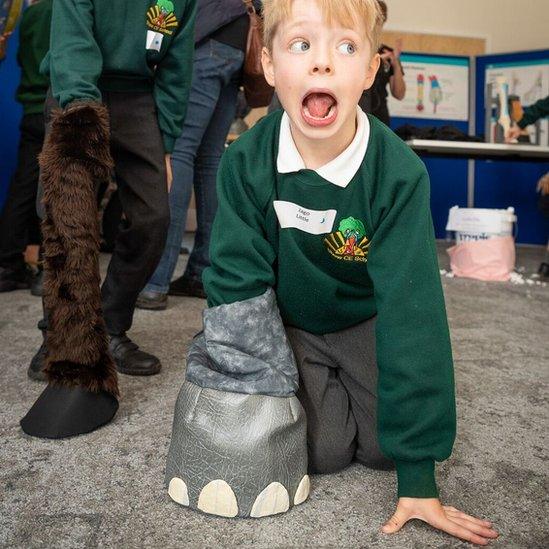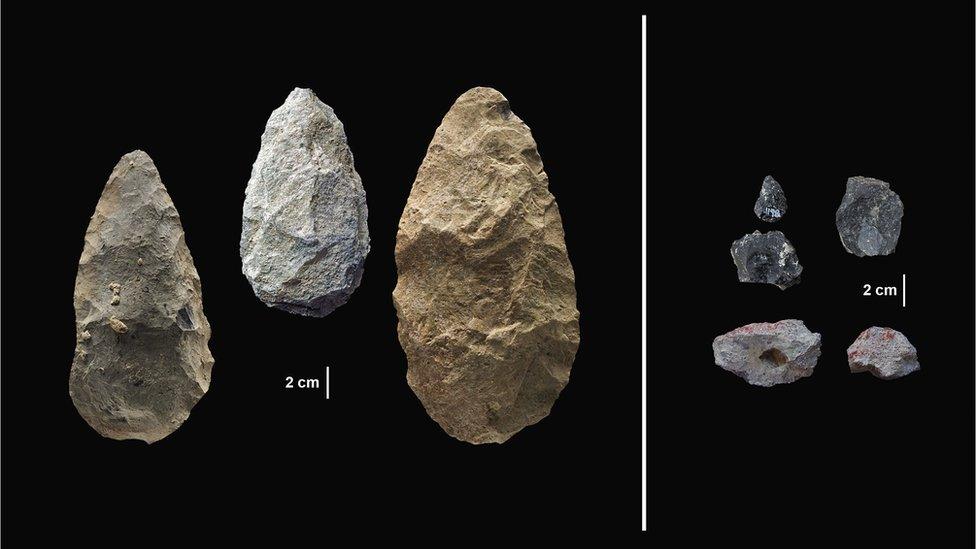Quiz: Test your knowledge of evolution
- Published

'What came first the chicken or the egg?' is a common question posed by children
Even spelling the word, evolution, can be tricky when you're seven, but Sophia tells me confidently that evolution "basically means engineering".
And Jack says that sharks are lighter underneath so that "when the sun is on the sea, you can't really see the sharks".
He's talking about the fact that sharks have evolved a form of camouflage that helps them sneak up on their prey.
At the opening of the new Milner Centre for Evolution, external at the University of Bath, school children are learning about evolution through the help of cuddly sharks of all shapes and sizes, fruit flies and even a tame owl.
Their comments reveal a budding interest and knowledge of evolution - at even a tender age.
How much do you know about evolution? Test your knowledge here.
Picture credits Getty Images
Thank you to Paula Kover, University of Bath, for help with the quiz.
If you cannot see the quiz, click here.
Scientific understanding of evolution is well accepted in the UK, compared with other countries, but past surveys have suggested that at least one in five of people are unsure about it.
"The classic one is people don't want to say we're descended from apes - but actually we're not, we're descended from a common ancestor," says Dr Kay Fountain, a veterinary scientist studying the evolution of bacteria in bats.
She brandishes a furry elephant hoof that fits on a human hand to give a sense of how, over millions of years of evolution, animals lost their side toes and developed a single hoof.

Animal legs: By studying different animals you can see how legs developed through time
Meanwhile, colleague, Dr Nicholas Priest is teaching children the basics of evolution through his work on fruit flies. He says evolution as a core concept is one that everyone can relate to, provided they get the right exposure to it.
"To some extent, the reason why we have these misconceptions is there hasn't been enough clear message about what the story is and what the latest evidence really shows."
Other stories you might like to read:
Earliest animal fossils are identified
Scientists make cane toad DNA breakthrough
Scientists at Bath are launching a free online course, Understanding and Teaching Evolution, external, to help people better understand and teach the subject. They're also carrying out research to improve teaching of evolution in schools.
Dr Momna Hejmadi says the research shows it is better to teach genetics first, namely the basics of how inheritance works - to get a better understanding of evolution theory.
"Because evolution is life itself, all life on Earth has an evolutionary basis, " she says.
"It's not just about understanding how life began but also in terms of treatments and therapies - stem cells or antibiotic resistance - all of these health issues have an underpinning of understanding evolution."
Follow Helen on Twitter, external.
- Published15 March 2018

- Published14 August 2018
